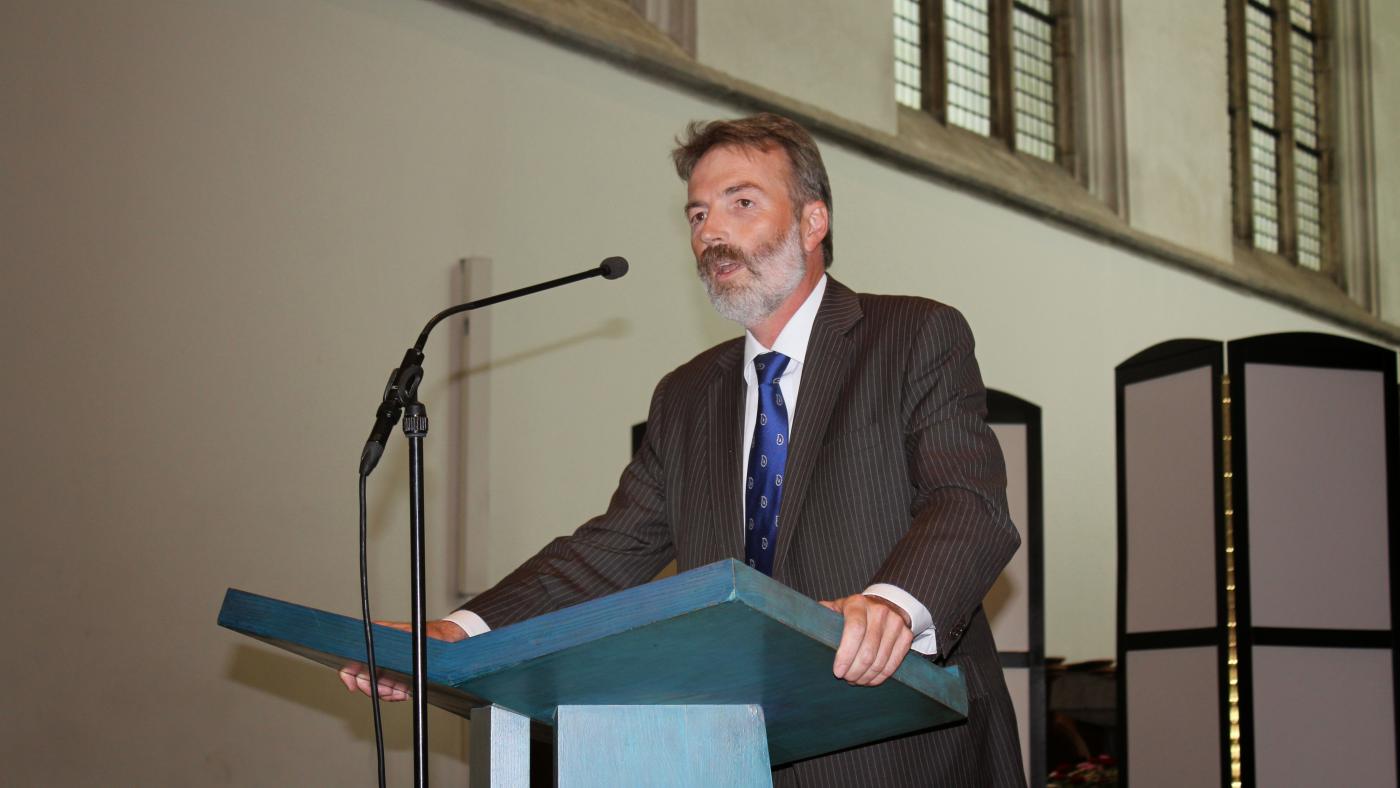Ex-Dean Rebo Faculty Henk Kummeling to become new UU rector

Henk Kummeling (1961) has been professor in Utrecht since 1996. In the past twenty years, he’s earned his stripes as a teacher, scientist and manager. Kummeling was nominated as teacher of the year by the students of the Faculty of Law multiple times. He was the chairman in the committee responsible for establishing the bachelor-master structure of higher education - where, incidentally, departing rector Bert van der Zwaan acted as vice chairman. With that position, Kummeling was a founding member of the UU’s educational model that was implemented in 2002, of which the slogan was ‘signing up = participating = succeeding’. He has always been a firm opponent of the endless retaking of tests, a discussion which is once again relevant today.
Itching to govern
As a scientist, he’s linked to the strategic theme of Institutions, and is a proponent of multidisciplinary research. Outside of the university, Kummeling found renown as chairman of the national Electoral Council. Whenever there were problems or questions about elections, Kummeling had to communicate the Council’s explanations and statements.
From September 2008 to September 2014, Kummeling was Dean of the Rebo Faculty (Law, Economics and Governance). Later, he spent some time as a visiting professor in South Africa, after which he returned as a Distinguished Professor. “When I was teaching as a Distinguished Professor, I did feel that itch to return to a manager’s position,” Kummeling says about his motivation to become rector. “You encounter things you’d like to see changed.” As an example, he mentions the barriers of disciplines students and researchers often face. “I noticed that students would love to look beyond the borders of their own disciplines, but that it isn’t that easy to achieve in practice.”
Kummeling was only willing to agree to the request to become rector if there was broad support for it, and if his candidacy received the support of the deans and other members of the Executive Board.
First ‘gamma’ rector in a long time
It’s been quite a while since we had a rector who didn’t hail from the Sciences corner. Hans van Ginkel (1986-1997), a social geographer, was the last ‘gamma’ rector. Remarkably, the current board has three former deans in it at the moment: vice president Annetje Ottow was Kummeling’s successor at the Faculty of Law, while president Anton Pijpers was Dean of Veterinary Medicine.
Emmo Meijer, chairman of the Supervisory Board, doesn’t see a problem with this. “I think that a large university like the UU should choose its rector among its own ranks. If that’s not possible, it’d be a weakness.” The search for the next rector mostly focused on internal candidates.
Meijer says that by appointing Kummeling, the university has found someone with an interdisciplinary point of view on education and research. This rector, he says, is aware of what matters to students and staff. He complements the other board members. “Annetje Ottow is from the same faculty, but she has a completely different area of expertise. Furthermore, she worked outside the university for a very long time,” Meijer explains.
Female candidates
In the early days of the recruitment process for a new rector, there was some protest against the selection committee’s formation, mostly because it was said there weren’t enough women in it. The committee was then expanded. Still, Meijer says he never felt pressure to appoint a woman as the next rector. “We as a committee made a shortlist, and of course we looked at possibilities of competent women - and they were there, definitely. But when we approached the candidates on our shortlist, some candidates, women among them, said it wasn’t the right moment in their career to become a rector. Besides, we have one woman in the Executive Board and two in the Supervisory Board. In terms of gender ratio, we’re not doing poorly at all.”
Henk Kummeling (1961) studied law in Nijmegen, where he received his PhD in 1988. After his promotion, he became associate professor of State and Governance Law at Utrecht University. In 1994, he was appointed as part time professor of State and Governance Law at the Catholic University in Tilburg. In 1995, he became professor of State Law and Comparative State Law in Utrecht. He has been chairman of the Electoral Council since 2005. On April 25, 2014, he was knighted an Officer in the Order of Orange-Nassau. After his time as a rector, he became visiting professor at the University of the Western Cape in Cape Town, South Africa. The UU named him Distinguished Professor in 2015.